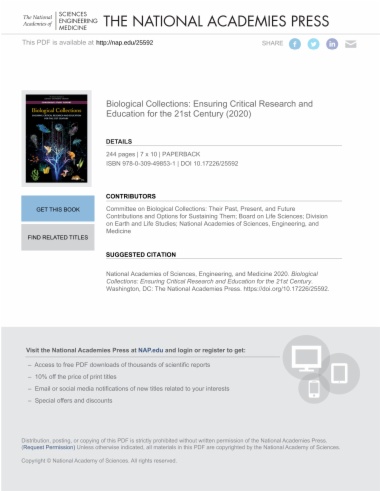

Biological collections are a critical part of the nation's science and innovation infrastructure and a fundamental resource for understanding the natural world. Biological collections underpin basic science discoveries as well as deepen our understanding of many challenges such as global change, biodiversity loss, sustainable food production, ecosystem conservation, and improving human health and security. They are important resources for education, both in formal training for the science and technology workforce, and in informal learning through schools, citizen science programs, and adult learning. However, the sustainability of biological collections is under threat. Without enhanced strategic leadership and investments in their infrastructure and growth many biological collections could be lost.
Biological Collections: Ensuring Critical Research and Education for the 21st Century recommends approaches for biological collections to develop long-term financial sustainability, advance digitization, recruit and support a diverse workforce, and upgrade and maintain a robust physical infrastructure in order to continue serving science and society. The aim of the report is to stimulate a national discussion regarding the goals and strategies needed to ensure that U.S. biological collections not only thrive but continue to grow throughout the 21st century and beyond.